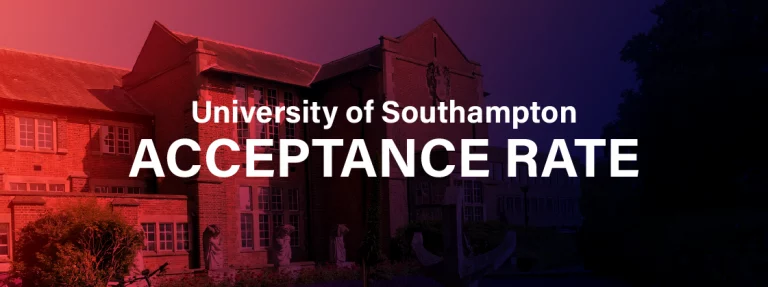Table of Contents
Dreaming of earning your MBA in Europe? Welcome to Germany! This place is also home to some of the world’s top business schools. With globally ranked MBA programs, industry links to companies like BMW, Deutsche Bank, and Siemens, and tuition fees that are often a fraction of what you’d pay in the US or UK, it’s no wonder more than 25,000 international students choose business programs here every year! In this guide, we’ll walk you through the best business schools, tuition costs, eligibility, and where to live while you study. Let’s get you one step closer to your MBA in Germany.
What Are the Best Business Schools in Germany in 2025?
Germany is fast emerging as a global hotspot for management education. With over 25,000 international students currently enrolled in business-related master’s and MBA programs, the country is gaining popularity among aspiring business professionals from India, China, Nigeria, Brazil, and beyond. In fact, Germany ranks among the top 5 countries globally for international MBA enrollment (GMAC 2024).
What makes German business schools so appealing? It’s a mix of affordable tuition, triple-accredited institutions, strong career outcomes, and close connections to top-tier employers such as BMW, Siemens, Deutsche Bank, SAP, Allianz, and Bosch. According to the QS Global MBA Rankings 2025, five German business schools are now ranked in the Top 100 worldwide, and three have earned the prestigious triple crown accreditation (AACSB, AMBA, EQUIS)—a recognition held by less than 1% of business schools globally. Below are the key details of top business schools in Germany:
| Business School | Location | QS Global MBA Ranking 2025 | Notable Programs | International Student Percentage |
| Mannheim Business School | Mannheim | #47 | Full-Time MBA, Executive MBA | 60% |
| ESMT Berlin | Berlin | #78 | MBA, Executive MBA, Master in Management | 40% |
| WHU – Otto Beisheim School of Management | Vallendar | #66 | MBA, Global Online MBA, Master in Management | 35% |
| Frankfurt School of Finance & Management | Frankfurt | #96 | MBA, Executive MBA, Master in Finance | 50% |
| TUM School of Management | Munich | #50 (Europe) | MBA, Master in Management & Technology | 30% |
How Much Does It Cost to Study MBA in Germany for International Students?
One of the biggest advantages of pursuing an MBA in Germany is the cost-effectiveness—especially when compared to countries like the US, UK, or Australia. According to GMAC and DAAD 2024 reports, international MBA students in Germany typically spend 40–60% less than their counterparts in English-speaking countries. In 2025, tuition fees for full-time MBA programs at top German business schools range between €30,000 and €50,000, with many offering scholarships, flexible payment plans, and early-bird discounts.
Public universities like TUM School of Management offer Master’s-level business programs for as little as €500 per semester, making Germany a truly affordable destination for high-quality business education. On top of tuition, you should budget an additional €10,000–€15,000 per year for accommodation, insurance, food, travel, and study materials. Cities like Berlin and Munich are on the higher end, while places like Mannheim and Vallendar are more affordable. Following are the key details of MBA tuition fees & program costs in Germany:
| Business School | Tuition Fees (Approx.) | Program Duration | Scholarships Available | Cost Insights |
| Mannheim Business School | €39,500 | 12 months | Yes – Early bird, diversity & merit-based grants | Affordable yet globally ranked; includes study trips, career coaching |
| ESMT Berlin | €49,000 | 12 months | Yes – Women in Leadership, Academic Excellence | Ranked among top 10 for entrepreneurship; strong focus on innovation |
| WHU – Otto Beisheim School of Management | €40,500 | 12 months | Yes – WHU scholarships & corporate partnerships | Includes international modules & personal leadership training |
| Frankfurt School of Finance & Management | €38,000 | 12–15 months | Yes – Women in Business, FS MBA Scholarship | Located in Germany’s finance hub; dual campus options available |
| TUM School of Management (Public) | €0 – €500 (semester fee) | 24 months | Limited – via DAAD, foundations, or external funds | Public university with minimal fees; top-ranked for tech + business integration |
What Are the Eligibility Criteria for MBA in Germany in 2025?
Germany is home to over 130 accredited MBA programs and is one of the top 5 MBA destinations in Europe for international students, according to the QS MBA Report 2024. As per the GMAC 2024 Application Trends Survey, more than 42% of MBA applicants in Germany are international, with a rising number from India, Brazil, China, and Nigeria.
Most German business schools require a mix of academic qualifications, work experience, English proficiency, and personal motivation. What’s new? Over 65% of German MBA programs now waive GMAT/GRE for candidates with strong academic or professional backgrounds—especially for Executive MBAs and tech-oriented MBAs. Below are the key details of eligibility criteria for MBA in Germany:
| Eligibility Requirement | Details |
| Academic Qualification | Bachelor’s degree (minimum 3–4 years) in any field from an accredited university. Most schools require a minimum GPA of 2.5+ on the German scale. |
| Work Experience | Minimum 2–3 years of full-time experience for full-time MBAs. Executive MBAs require 5–8 years. Internships don’t usually count. |
| Language Proficiency | IELTS 6.5+, TOEFL iBT 90+, or Duolingo 115+ (accepted at schools like ESMT & Frankfurt School). German proficiency not required. |
| Entrance Exam (GMAT/GRE) | Recommended: GMAT score of 600–650+ or GRE equivalent. Waived at many schools if GPA or work experience is strong. |
| Statement of Purpose (SOP) | 500–1,000 words describing your career vision, academic/professional background, and why you’re applying to that specific school. |
| Resume / CV | Updated CV detailing professional experience, leadership roles, achievements, and certifications (usually 1–2 pages max). |
| Letters of Recommendation | 1–2 letters from academic/professional referees—ideally from direct managers or professors who know your work ethic and potential. |
| Interview Process | Required at almost all top schools. Interviews may be conducted online or in-person and evaluate communication skills and motivation. |
| Application Platform | Most MBA schools accept direct applications via their official websites. |
| Application Deadlines | Fall 2025 Intake: Apply by March–April 2025 (Round 1 usually starts by October 2024). Rolling admissions are common. |
What Are the Best Cities to Study Business in Germany?
In 2025, the country is home to 5 of Europe’s top 100 business schools, and the majority of them are located in cities that double as economic and innovation hubs. According to Statista and QS 2025 data, over 40% of international MBA students in Germany prefer studying in cities like Berlin, Frankfurt, Munich, and Mannheim—thanks to their excellent job prospects, business networks, and post-study opportunities.
What makes these cities even more attractive? They host global headquarters of companies like BMW, Allianz, Siemens, Deutsche Bank, SAP, and Zalando. Plus, cities like Berlin and Frankfurt are in the top 10 startup hubs in Europe, making them ideal for students with entrepreneurial ambitions. Following are the best cities to study business in Germany:
| City | Key Highlights | Top Business Schools | Avg. Monthly Rent (EUR) | Top Off-Campus Student Accommodation |
| Berlin | Germany’s capital and a global startup hotspot. Ranked #1 for student life in Germany (QS 2024). | ESMT Berlin, HWR Berlin, IU Berlin | €600 – €900 | Nazarethkirchstr. 51, Cunostr. 44, Berlin Mitte, Friedrichstr 63 |
| Frankfurt | Germany’s financial capital—home to the European Central Bank, Deutsche Bank & Commerzbank HQs. | Frankfurt School of Finance & Management | €700 – €1,000 | Frankfurt Reidberg, Alvarium, Boarding House, Frankfurt West |
| Munich | One of Europe’s wealthiest cities. Major base for multinationals like BMW, Siemens, and Allianz. | TUM School of Management, Munich Business School | €800 – €1,200 | Vonder Munich, Wunder Locke |
| Mannheim | Ranked as one of Germany’s most cost-effective student cities with a strong business environment. | Mannheim Business School | €500 – €800 | Friedrich-Ebert-Straße – 1095415, Käthe-Kollwitz-Straße – 1513320, Juteweg – 1563321, Käfertaler Straße – 1491209 |
What Are the Best Accommodation Options Near German Business Schools?
Finding a place to live in Germany is just as important as choosing your business school—especially in bustling cities like Berlin, Munich, and Frankfurt, where the housing market is competitive. According to DAAD (2024) and the German National Association for Student Affairs (Deutsches Studentenwerk):
- Over 65% of international business students in Germany live off-campus.
- Around 30% secure places in university-managed dormitories, thanks to lower costs and guaranteed amenities.
- Rents vary widely by city: Munich and Frankfurt are among the most expensive (€700–€1,200), while cities like Mannheim and Vallendar are budget-friendly (€400–€700).
- Student demand peaks around July to September (Winter intake) and January to March (Summer intake), so early applications are key.
Below are some of the top student housing options in Germany:
| Accommodation Type | Description | Average Monthly Rent (€) | Best For | Availability |
| Student Dormitories | Managed by universities; often include shared kitchens, laundry, and utilities | €250 – €400 | Budget-conscious students | Limited – apply 3–6 months early |
| WG – Shared Apartments | Shared with 2–4 students; separate rooms with shared common areas | €300 – €600 | Social and cultural experience seekers | Widely available in student cities |
| Private Apartments | Fully independent; ideal for those seeking privacy and quiet | €500 – €800+ | Mature students or couples | Moderate to low in urban centers |
| Studio Flats / Micro-Apts | Compact living spaces with private bath/kitchen | €600 – €1,000+ | Working professionals, final-year MBA students | Common in Berlin, Frankfurt |
| PBSA (Private Student Housing) | Premium accommodations with gym, Wi-Fi, study rooms, etc. | €700 – €1,200+ | International students seeking comfort | Available in major cities |
Conclusion
So, is Germany the right place for your MBA? Absolutely! From triple-accredited schools and globally ranked programs to thriving business cities and budget-friendly education, Germany checks all the right boxes for international students. And don’t forget—finding the right accommodation can make a world of difference in your study experience.
That’s where platforms like University Living can help. Whether you want a cozy studio near WHU or a vibrant shared apartment in Berlin, University Living makes student housing simple, secure, and student friendly. Start shortlisting your dream B-schools, polish that SOP, and get ready for your big move. Your MBA journey in Germany begins now!
Frequently Asked Questions
How Can I Apply for an MBA in Germany as an International Student?
To apply for an MBA in Germany, you need to follow these general steps:
Check eligibility: Most schools require a bachelor’s degree, 2–3 years of work experience, and English proficiency.
Prepare your documents: This includes your academic transcripts, resume/CV, SOP (Statement of Purpose), letters of recommendation, language test scores (IELTS/TOEFL), and GMAT/GRE (if required).
Submit application: Apply through the university’s official portal or platforms like uni-assist or MBA.com.
Attend interview (if shortlisted): Most top schools conduct personal or video interviews.
Await offer and apply for a visa: Once admitted, begin your student visa application for Germany.
Is Germany Good for MBA Programs for Indian and International Students?
Yes, Germany is one of the top destinations for MBA studies in Europe, especially for Indian and international students. Here’s why:
1. Over 25,000 international students are currently enrolled in business and management programs.
2. Germany offers affordable or tuition-free education at many public universities.
3. Several schools like Mannheim, ESMT Berlin, WHU, and Frankfurt School are globally ranked and triple-accredited.
4. Post-study work opportunities are excellent due to Germany’s 18-month job seeker visa and strong economy.
What Are the Career Opportunities After Doing an MBA in Germany?
Graduates from German business schools have strong career outcomes. According to recent alumni surveys:
1. 90%+ MBA graduates from top schools secure jobs within 6 months.
2. Common roles include Consultant, Product Manager, Finance Analyst, Operations Manager, and Business Development Manager.
3. Many students get placed in companies like EY, Deloitte, Amazon, BMW, Siemens, and Allianz.
What Are the Admission Deadlines for MBA Programs in Germany for 2025?
Admission deadlines vary by school, but here’s a general guide:
1. Fall 2026 Intake (Main Intake):
Round 1: October–December 2025
Round 2: January–March 2026
Final Round: April–June 2026
2. Always check the official university website for exact dates.
What Exams Are Required to Study MBA in Germany?
Most MBA programs in Germany require the following exams:
English Language Proficiency: IELTS: Minimum 6.5, TOEFL iBT: Minimum 90 and Duolingo: Minimum 115 (accepted at select schools)
GMAT/GRE: GMAT (600–650+) or equivalent GRE scores are required at schools like WHU and Mannheim.


















